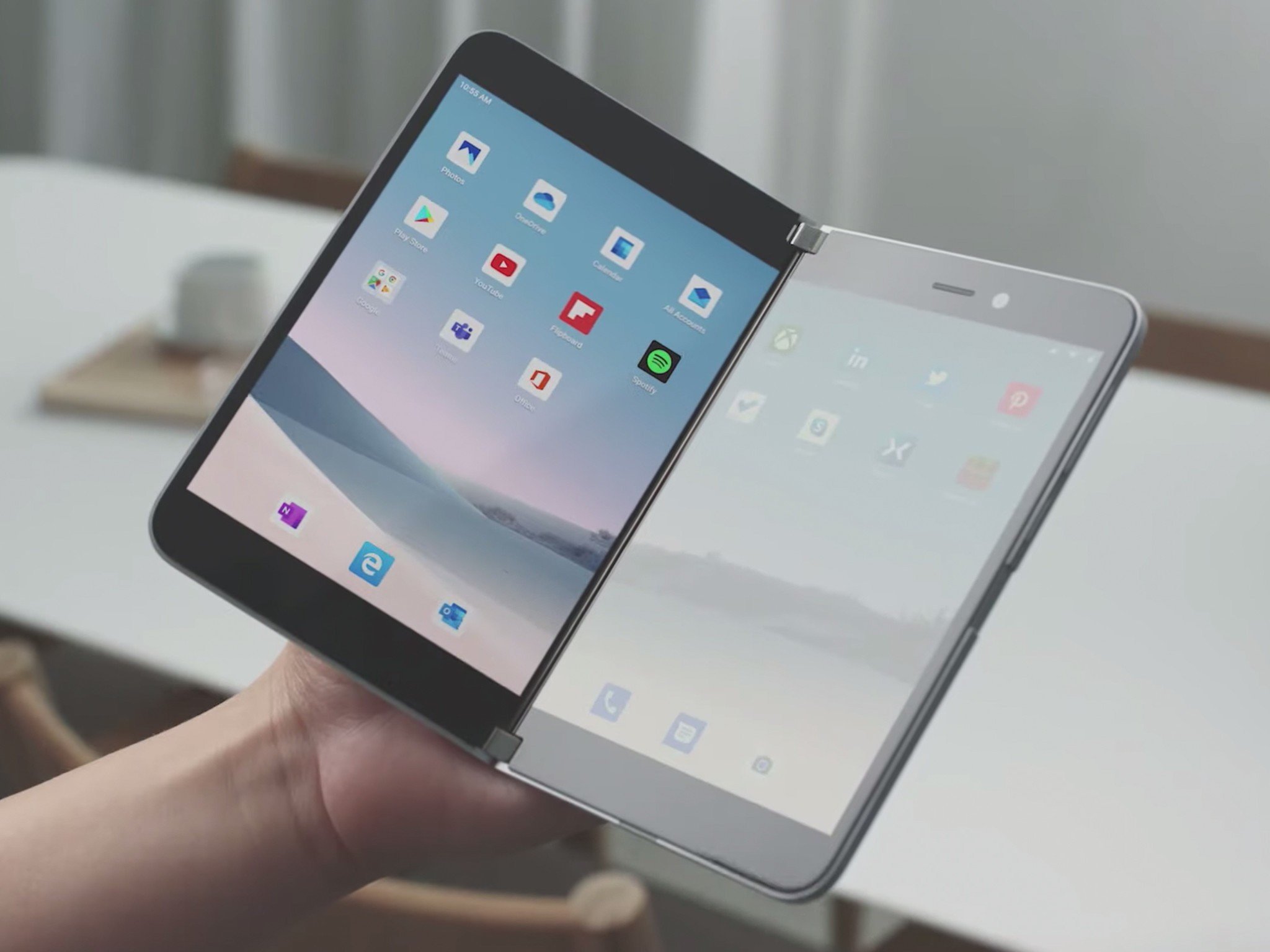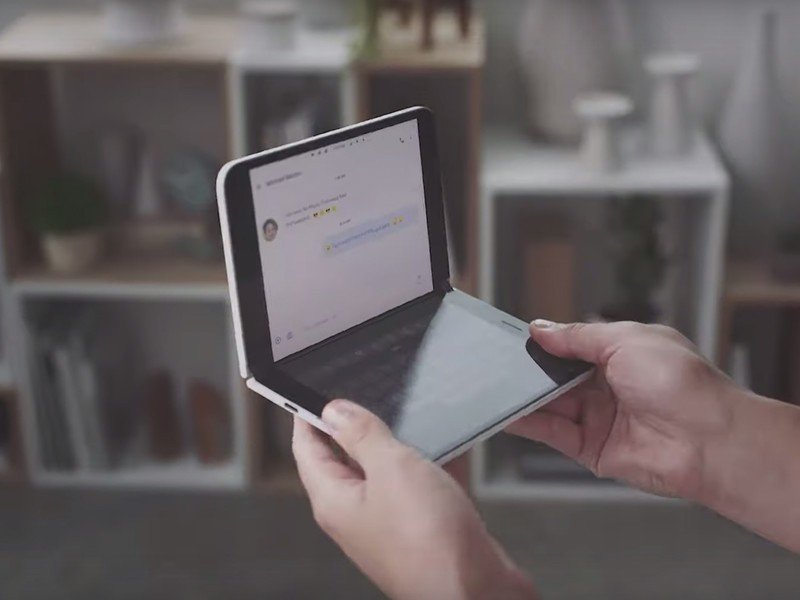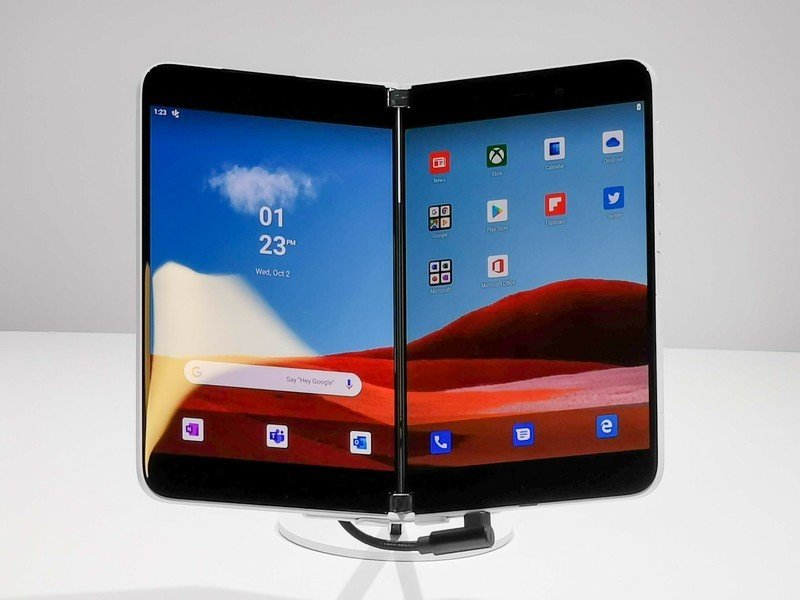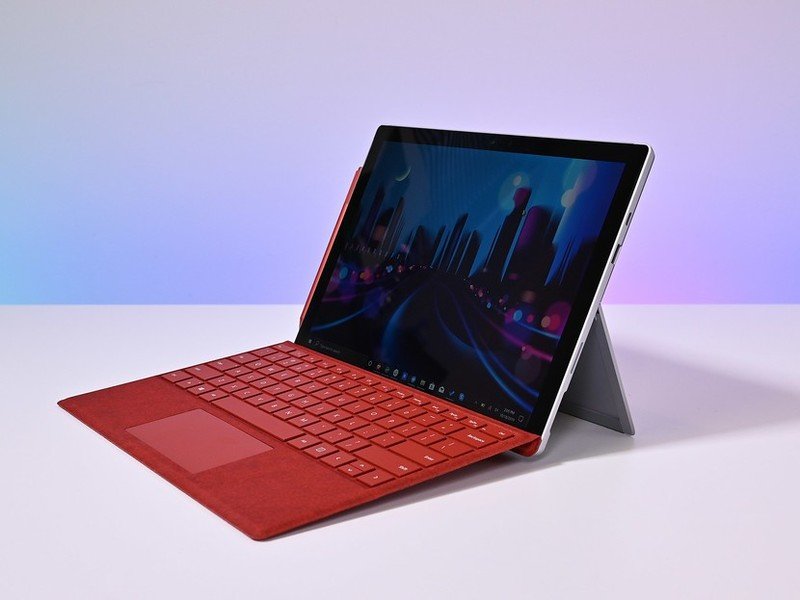Microsoft doesn't need to give Android fans good reasons for the Surface Duo's existence

This is a guest post by Juan Carlos Bagnell of SomeGadgetGuy. It is also cross-posted on his website, SomeGadgetGuy.com
I'm sure tech fans are well familiar with the happenings at Microsoft. Android enthusiasts are craving new form factors and new features. I still chat on the regular with former Window Phone fans still hurting from that canceled experiment. There's a clear interest floating through various gadget communities, even without Microsoft "leaking" or posturing around the web. Maybe we can chalk part of the silence up to a global pandemic?
The concern for this silence, a product like the Surface Duo needs to be visible. A bold experiment delivered in obscurity is a tragic mistake. If consumers don't understand who this device is made for, then it will likely fall into the hands of a select few (with the money to test drive it), who will likely pan it for being unfamiliar. The Surface Duo looks to be a specific solution, for a specific consumer, and follows in the footsteps of Surface tablets and laptops.
The success or failure of the Surface line will be dictated by people who own Surfaces.
Microsoft has grown up as a software company. Satya Nadella made big promises on the future of Microsoft, focusing on services and the cloud. It was a risky change, but one showing clear advantages today. Any computer can be a platform for Microsoft services. If Windows 10 isn't ready to be used in a smaller form factor, then Android is an easy substitute. Axing the Windows Phone team years ago meant a ton of developer talent was pointed directly at iOS and Android.
The success or failure of the Surface line will be dictated by people who own Surfaces.
How better to improve Microsoft services on Android than to build a bleeding-edge Android-powered device?
We should be a little concerned about some of the internal team arrangements, how the Movial transition likely slowed some of the development, but concerns are currently speculation. The recent move bringing that team under closer collaboration, and to loosely discuss development on Surface Duo 2, were the right moves to make. Timing is difficult. Absorbing outside developers is difficult. None of this is easy. It's less a worrying sign WHEN they make a transition like this, and more an encouraging sign to see a company adapt to issues in their product development chain.
Be an expert in 5 minutes
Get the latest news from Android Central, your trusted companion in the world of Android

We're going to see a number of armchair quarterbacks loudly chatting up what Microsoft should've done to be successful. In fact, I'm writing this in response to Andrew Martonik's assertion that Microsoft shouldn't be given the benefit of the doubt when it comes to making an ambitious Android phone. It's a common refrain — Microsoft should've made a "normal" phone first before the grand Surface Duo experiment. How can Microsoft figure out all the little quirks of Android unless they make a "regular" phone first?
It's my hypothesis that Microsoft isn't interested in making an Android phone. Microsoft wants to make a smaller Surface.
There are no "basics" to figure out. There is no agreed-upon aesthetic for a dual-screen or foldable phone. We are in uncharted territory. Now is the perfect time for Microsoft to step back into the mobile hardware landscape.
Microsoft isn't interested in making an Android phone. It wants to make a smaller Surface.
Had Microsoft opted for a normal phone, we know how it would have been received. They would have accrued some praise for a couple of features. They've earned some skepticism for how they handled Windows Phone and Nokia, so numerous editorials would hinge on the emotional baggage associated with the Ballmer era.
The "normal" phone would have been picked apart. If it had too many unfamiliar features, those features would have been called gimmicks. If it didn't have enough "new" built-in, the phone would have been panned for not being original enough. Tech reviewers at the end of this dance would be all-too-happy to share the numerous reasons why you shouldn't buy the phone.
Building a "normal" phone, Microsoft would not have learned what they needed to learn to make a pocket-sized Surface. If you want to make a Surface, you need to make a Surface.
This seems to be one of the emotional stumbling blocks for Android enthusiasts. Just because a company uses Android, doesn't mean they want to make an Android device.
A less successful version of that idea would be Blackberry. DTEK, KEYOne, and KEY2 benefitted from a familiar Android UI, but the OS was heavily customized and patched to deliver a Blackberry experience focused on security. Android fans bristled at a lack of updates (which likely didn't contribute much to the security conversation, considering the heavy customizations), but Blackberry fans "got it". There just weren't enough of those Blackberry fans left to sustain those differences.
A more successful example might be Amazon Fire tablets. Amazon has the resources to build an entire ecosystem and app store, but they still didn't code their own operating system from scratch.
The longer we wait for the Surface Duo, the more anxious we should get. That's understandable. Launching a phone is a ridiculously complicated dance, so intricate it is incredible that any product makes it to consumers. The phone market is also ruthlessly fast. Microsoft's experiences with laptops and tablets look leisurely by comparison.
For the first Surface phone though, it's more important to get it right than to get it out "on time". There is no set schedule for such an important release. If Microsoft should learn anything from the established players in the Android ecosystem, you shouldn't rush a folding phone to market. Samsung can weather that storm. Microsoft can't.

The Surface needs to arrive as polished as Microsoft can make it. It needs to arrive with a premium price tag regardless of the older specs inside. Microsoft can't start the conversation on this product line devaluing the Surface brand just because Android enthusiasts are used to bargain-basement prices on slightly older chipsets.
It's largely irrelevant looking at Android consumer expectations for what makes a "good" Android phone. The same as it was largely irrelevant asking Dell customers what they wanted in a touchscreen portable slate PC with a detachable keyboard back in 2012. Microsoft has a vision for what the future of their services should resemble. The best way to showcase that vision is to build some hardware.
Most people don't care whether the Surface Duo has top-of-the-line specs because they trust Microsoft to do more with less.
Android fans will obsess over specs and bullet points, and complain about it being too expensive (when we don't know yet how much it will cost), but the reality is, the Surface Duo isn't made for high-performance Android enthusiasts.
The Surface line does not exist to completely displace the Windows laptop ecosystem. In fact, Surface is a fairly conservative collection when you look at the entirety of the PC experience. It stands as a Microsoft flavor, not the only flavor.
The individual interested in a Surface Duo might not care if it has the most powerful CPU, or the most RAM. They probably care that the phone is machined to resemble their Surface Pro, that their favorite services migrate well, and that they can use the same stylus on both devices.
Kalamata olive bread sticks in first rise. pic.twitter.com/XQvC00jgxTKalamata olive bread sticks in first rise. pic.twitter.com/XQvC00jgxT— Frank X. Shaw (@fxshaw) July 9, 2020July 9, 2020
The hypothetical Surface Duo owner probably isn't tracking what phone maintains the highest FPS in gaming benchmarks, but they might be interested in a first-party solution for Microsoft Game Pass and xCloud. Beefy internals might not be as critical when using services offloaded to servers.
The camera will be touted as another potential deal-breaker. We could draw some parallels with BlackBerry here again, where the KEY cameras were better than the moaning might have indicated, but the hype on mobile cameras doesn't seem to extend far outside enthusiast circles. "Acceptable" camera quality is a wide target, and Android fans seem to fixate on a narrow view of what makes a camera "worth it". A significant swath of consumers worldwide buy different products, at different price points, with different pros and cons. Those consumers seem to live with their phones just fine, even if the cameras onboard aren't always the Android Enthusiast Approved Best Cameras™.
While the Surface Duo camera specs might not be the most exciting, it's another area where "wait and see" should be the correct tactic. How a phone uses a camera sensor is just as important as what sensor is inside. Even as a worst-case example, however, the Surface Duo seems to be built around a future of cloud data and socially distant conference calls. The first generation of this experiment might only need to do that well. Time will tell.

We can complain about higher prices, but the machining and engineering here matter as much or more than the megapickles and giggleflips. We saw this same debate in a more limited way back in the dark days of Windows RT. The Surface 2 versus the Lumia 2520. Specs nerds complained about the higher price of the Surface 2, the two tablets had roughly comparable internals, but were all too happy to ignore the significantly more expensive build materials employed.
The Surface Duo will fall prey to similar criticisms, as folks conveniently ignore that we've never gotten a wraparound hinge right on a pocket computer. Recently I spoke with TCL executives about folding phones, where they candidly discussed challenges. A folding OLED isn't actually that difficult. But how a phone folds is incredibly difficult. Samsung's experiences here would verify that sentiment. Moving parts on a durable companion gadget are extremely difficult to do well.
This will be the first full-time dual screen with active pen support. The battery life might be bad, it might be good. We can guess, but we don't know that yet. It's not to excuse the phone before it launches, but we shouldn't condemn it, either. Until it's in our hands, it is acceptable to say "I don't know".
What remains is a promise. Can Microsoft deliver on a promise?
A lot of the initial criticisms levied against the Surface Duo ring hauntingly familiar to the jabs poked at the original Surface Pro. Microsoft iterated, improved, and by the Surface Pro 3 we saw a shift in the conversation. Consumers were interested in a product that showed consistency in the market. Because consumers were interested, the tone in reviews evolved.
Microsoft's history with phones is obnoxiously pockmarked. Starts and stops interrupted any potential for consumers to get a clear handle on what made a Microsoft solution different from the competition. By extending the Surface brand to a mobile product, it's hopefully a sign that this is a long-term strategy, like the original Surface.
Maybe Android enthusiasts can benefit from a slower and more carefully considered development pace. Maybe we've been overbuying compute power for years now. Maybe we don't need bleeding-edge specs swapped out every year at higher and higher component costs. Maybe we'd benefit from competing options outside our "normal" expectations.
If Microsoft has learned anything about hardware, we should hope they've learned that a product line cared for over time will succeed. We should hope they aren't hinging all of their future resources on the success of a single product launch. If expectations are managed properly on generation one, then we'll get a path to generation three that makes sense for consumers outside the tech review/tech entertainment space.
Microsoft doesn't need Android fan validation today. Microsoft needs to make the best Surface they can, then show us they can make a better one after that.

Formerly a workstation and server specialist working on a DOE technology contract, Juan Carlos Bagnell is a tech pundit fixated on competition in the consumer electronics space. You can catch more of his tech ramblings on SomeGadgetGuy.com and the Newegg YouTube channel.

